For decades, Washington and Caracas have danced an uneasy waltz — sometimes partners in oil, sometimes rivals in politics. The United States was once Venezuela’s biggest customer and, in many ways, its economic lifeline. But since Hugo Chávez’s fiery anti-American rhetoric and his embrace of “21st century socialism” in the early 2000s, the relationship has been defined by confrontation, sanctions, and the occasional flirtation with détente.
According to the Congressional Research Service, US policy toward Venezuela has oscillated between pressure and persuasion — never quite deciding whether to push regime change or push for negotiation. Under Trump’s first term, that indecision didn’t go away; it just became louder.
Trump’s return to the White House has seen a revival of that “maximum pressure” doctrine, with Secretary of State Marco Rubio — once a harsh critic of Maduro — now steering Venezuela policy toward open confrontation. Yet, as Phillip Gunson, Crisis Group‘s senior analyst for the Andes region, points out, the approach is still internally divided:
“Part of the policy-making establishment, led by Secretary of State Marco Rubio, is focused primarily on regime change, while others want to hit drug traffickers or ensure negative net migration of Venezuelans to the US. Then there is the oil lobby and the bondholders who need sanctions to be lifted and the economy to improve so they can recover debt. Rubio seems to have succeeded in pulling these various strands together, at least temporarily, but he needs a fairly quick victory, and it is unclear at this point whether he’ll get it.”
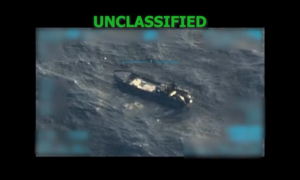
The White House says it’s fighting drug cartels — but the Navy’s Caribbean buildup tells a different story.
The latest crisis began in late September when US forces struck what the Pentagon described as “Venezuelan vessels engaged in narcotics trafficking” near the country’s northern coast. According to CNN and CBS News, this was the fourth such strike in two weeks. Caracas immediately accused Washington of “state terrorism” and declared a state of emergency. Russia, unsurprisingly, rushed to Maduro’s defense — Al Jazeera reports Moscow expressed “full support” for Venezuela and denounced the US operation as a “blatant act of aggression.”
Gunson expresses skepticism over any further outside intervention:
“Nobody will intervene to save Maduro from the US. There will be strongly worded communiques but no practical assistance.”
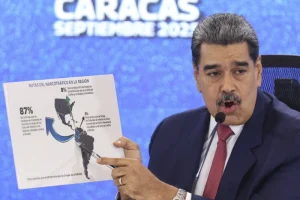
Trump’s rhetoric has escalated alongside the strikes. In remarks at Naval Station Norfolk, he praised the Navy for “blow[ing] the cartel terrorists… out of the water,” and hinted that if sea routes close, “we’ll have to start looking about the land.” The administration has also told Congress the US considers itself in a “non-international armed conflict” with drug cartels, an unusual legal framing for maritime interdiction actions. That’s a bureaucratic way of saying the US military can now sink Venezuelan boats without waiting for a lawyer to approve it.
Inside Venezuela, the Maduro government claims it has foiled multiple coup plots in recent months — some allegedly backed by exiled opposition figures and, it says, “foreign intelligence services.” The Conversation notes that both sides are “edging toward a war footing,” but that Washington’s domestic priorities — the economy, immigration, and public safety — may still restrain Trump from crossing the Rubicon.
Henry Ziemer, Associate Fellow with the CSIS Americas Program, who runs a blog focusing on security policy in the Americas, where he has covered US-Venezuela relations in the past, explains potential White House calculus:
“The current US military presence in the Caribbean is plainly too large and carries too much firepower to be intended purely for narcotics interdiction but is nevertheless still far smaller than the force that would be required for a full-scale incursion into Venezuela. In my estimation, the United States is likely hoping that by applying sufficient pressure against Maduro, it can catalyze a domestic movement within Venezuela that will sweep him from power without having to put US boots on the ground.”
Gunson warns that despite the tough talk, a full-scale invasion is far from simple:
“External pressure is probably causing the different factions within the power structure, including the upper ranks of the armed forces, to stick more closely together, since they are well aware that if they fail to do so they could all suffer the consequences. Unfortunately, there are also many non-state armed groups in Venezuela, including Colombian guerrillas and ex-guerrillas, so the conditions are ripe for protracted, low-intensity warfare if the US pushes regime change without a plan for the day after. The opposition leadership under Maria Corina Machado will not be capable of keeping order if there is no prior agreement with the military.”
That “day after” question looms large. Toppling Maduro might just unleash chaos rather than democracy. Ziemer paints a bleak picture of potential collapse:
“In a worst-case scenario, Venezuela could devolve into criminal violence like that gripping Haiti, where a weak central government with limited control over the security forces struggles to both preserve its legitimacy and protect its citizenry.”
So, could this naval brinkmanship spill into war? Probably not — at least not the boots-on-the-ground kind. NBC News reports the Pentagon is weighing “limited strikes on drug targets,” not a full invasion. Still, even limited action risks a spiral of retaliation, sanctions, and refugee surges.
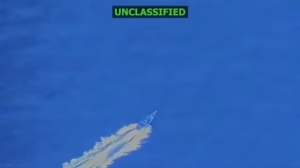
In this screengrab taken from a video posted by Defense Secretary Pete Hegseth on Friday, Oct. 3, a boat is visible just before it is hit by a military strike, off the coast of Venezuela. Hegseth said the boat was trafficking narcotics and that four men onboard were killed.
(Pete Hegseth / X)
That last point could haunt Trump politically. A conflict in Venezuela could push thousands more migrants north through Colombia and Central America, directly undercutting one of his marquee issues: border security.
As Gunson puts it bluntly, “Part of the policy-making establishment wants to ensure negative net migration of Venezuelans to the US.”
But wars, even small ones, don’t exactly stop migration — they turbocharge it.
Economically, the fallout could also be messy. Despite sanctions, US companies still buy limited Venezuelan crude under special licenses — a quiet acknowledgment of mutual dependence. As Ziemer notes:
“Even as the United States is posturing against Venezuela, it continues to cooperate to an extent in the energy domain. In my view, this reflects the Trump administration’s willingness to decouple economic from security relations. It is for this reason as well that Maduro has been cautious about confronting Trump directly, likely believing that he can still cut a deal with some mixture of concessions on energy and migration.”
But that balancing act may not hold. As Francisco Rodríguez, Center for Economic and Policy Research Senior Research Fellow, Josef Korbel School of Global and Public Affairs Faculty Affiliate at the University of Denver, and author of The Collapse of Venezuela: Scorched Earth Politics and Economic Decline, 2012-2020, points out, US sanctions have already deepened Venezuela’s economic collapse and fed anti-American sentiment:
“During the last decade, Venezuela has undergone the deepest economic contraction ever experienced by a country outside of wartime. Policy mistakes, mismanagement, and corruption have played a role, but US economic sanctions — first imposed in 2017 and then tightened in 2019 — have been an important factor in deepening this collapse. These measures have generated significant suffering and fostered animosity toward the United States among important sectors of Venezuelan society. Far from leading to a political transition, they have actually allowed the government to tighten its grip on power and deepen the country’s authoritarianism. Washington’s recent escalation risks repeating the worst of that experience. The United States has begun targeting Venezuelans based on nationality — through the invocation of the Alien Enemies Act for deportations and even through extrajudicial killings by the sinking of vessels in the Caribbean carried out without due process. While a full-scale land invasion of Venezuela is unlikely, limited military strikes remain possible. Such strategies are far more likely to backfire, reinforcing authoritarian control and undermining prospects for democratic change. The United States should instead support regional efforts for a peaceful, negotiated solution grounded in gradual democratic and institutional reforms that make coexistence between Venezuela’s competing political factions possible.”
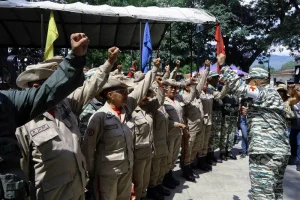
In short: if the US keeps punching, Maduro may grow stronger, not weaker.
And that’s the paradox haunting Washington’s Venezuela policy. Trump’s advisers want a quick, clean victory — a toppled dictator, a TV moment, and maybe a bump in approval ratings. But as the Council on Foreign Relations and WOLA both caution, Venezuela isn’t built for quick wins. It’s a fragile state sitting atop vast oil reserves, fractured institutions, and heavily armed gangs.
A misstep could turn it into another Haiti — but with more guns and much higher stakes.
Right now, the US and Venezuela are staring each other down across the Caribbean, sabers half-drawn. The rhetoric is fiery, the deployments are real, but neither side seems ready — or able — to go all the way. As Ziemer sums it up:
“Uncertainty seems to be the point, as it grants the United States maximum optionality to determine the future of US-Venezuela relations. Nevertheless, increasing militarization and posturing on both sides also creates opportunities for miscalculation, and the chance that both the United States and Venezuela could stumble into a fight neither country wants.”
The last thing the world needs is another proxy conflict — but then again, Washington’s foreign policy has rarely been about what the world needs. However, there is still an off-ramp. As Gunson points out:
“The Maduro government wants to negotiate. It is prepared to make concessions on drugs, crime, migration, and energy issues. But Washington wants Maduro to agree to leave — or the armed forces to overthrow him. And that does not appear to be on the table. The biggest question mark right now is what it would take for the US to declare victory and withdraw the fleet.”

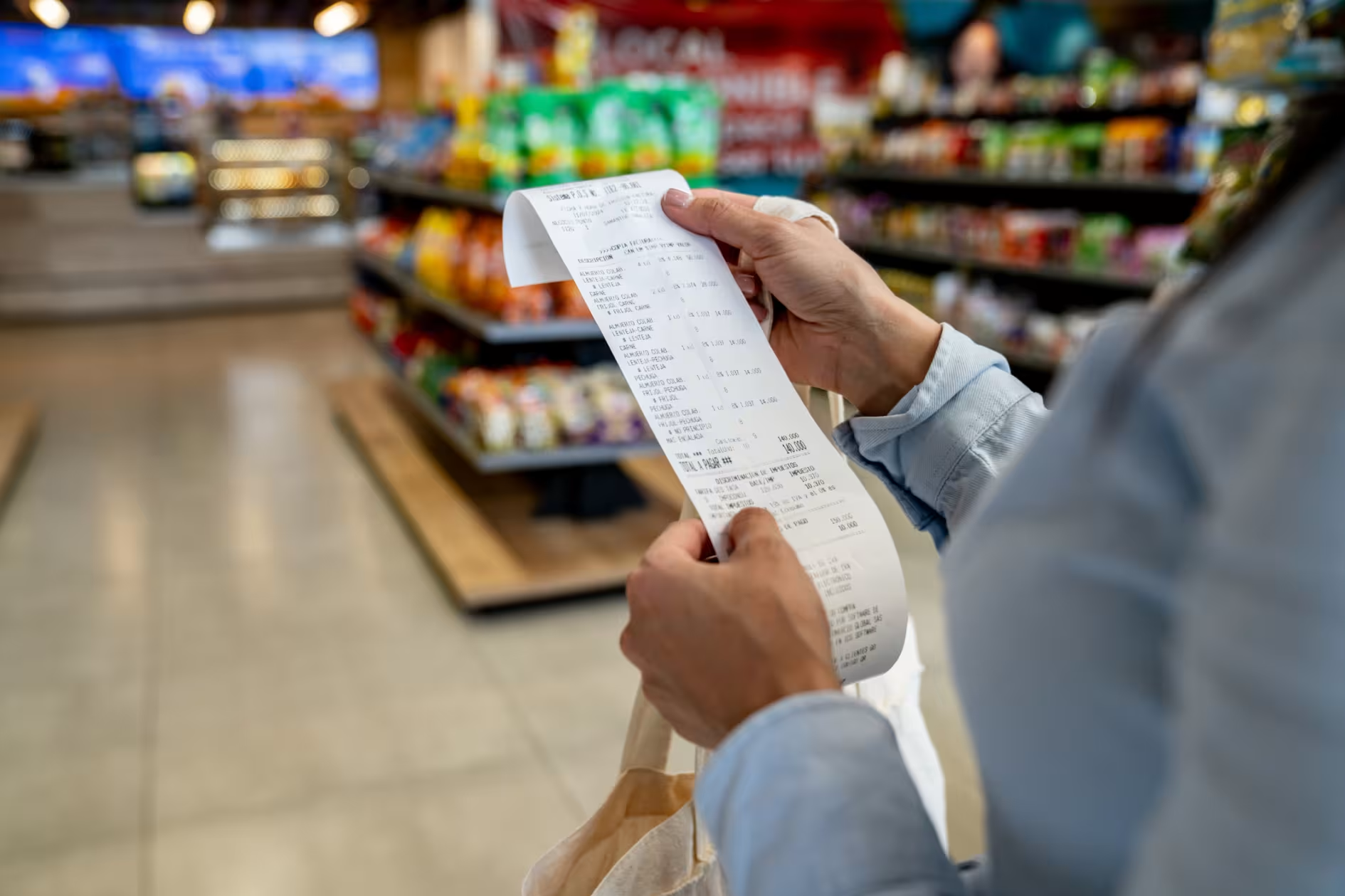
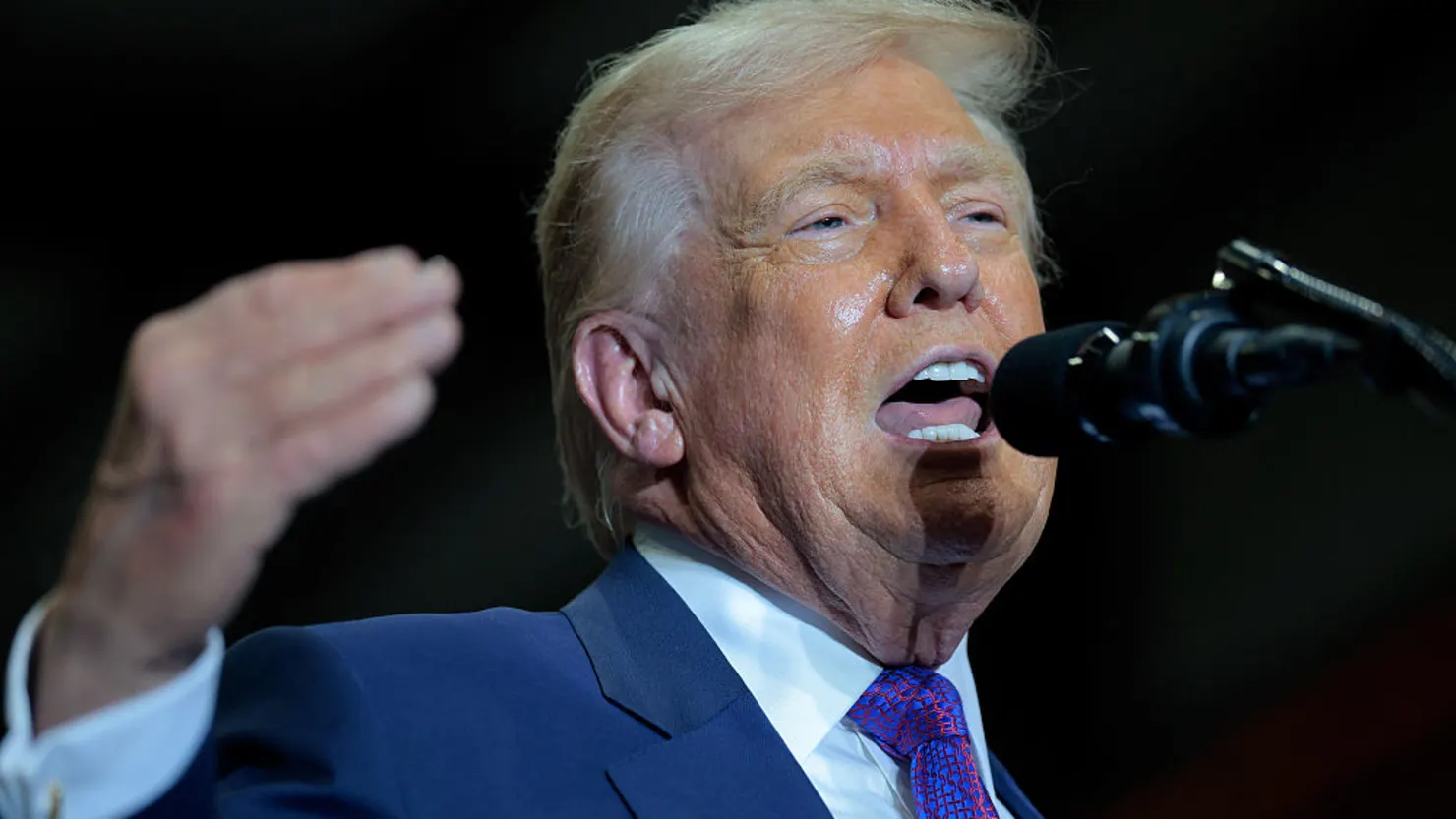
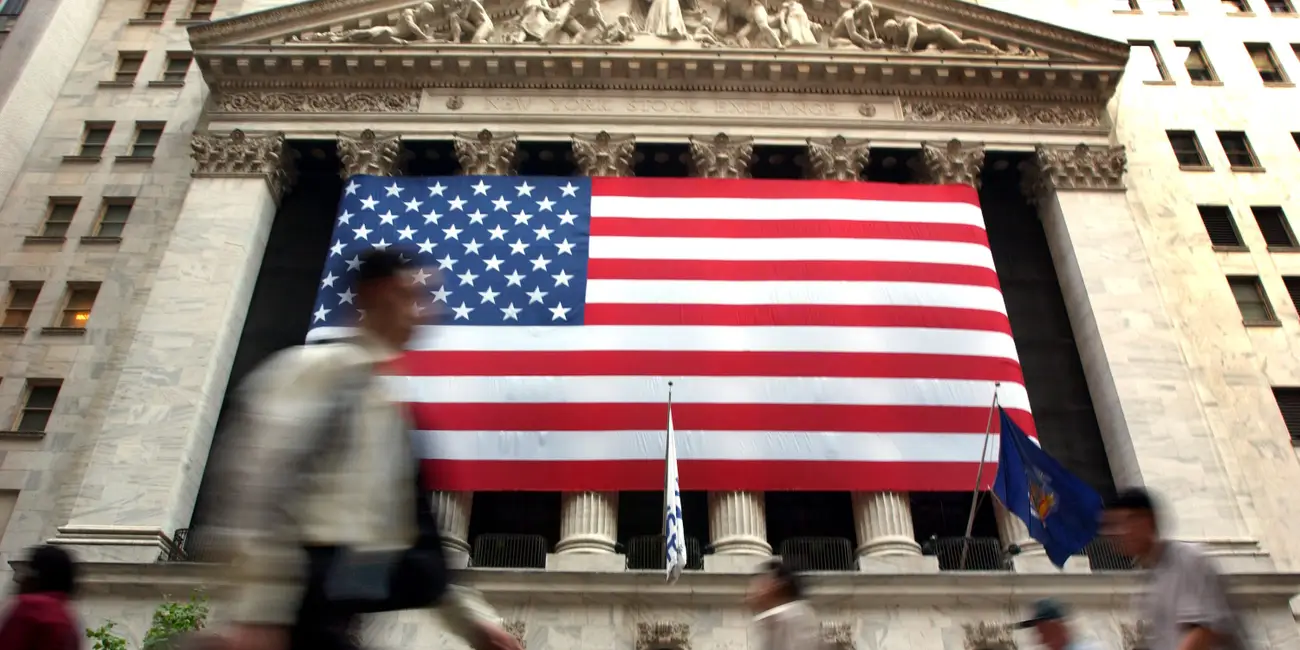
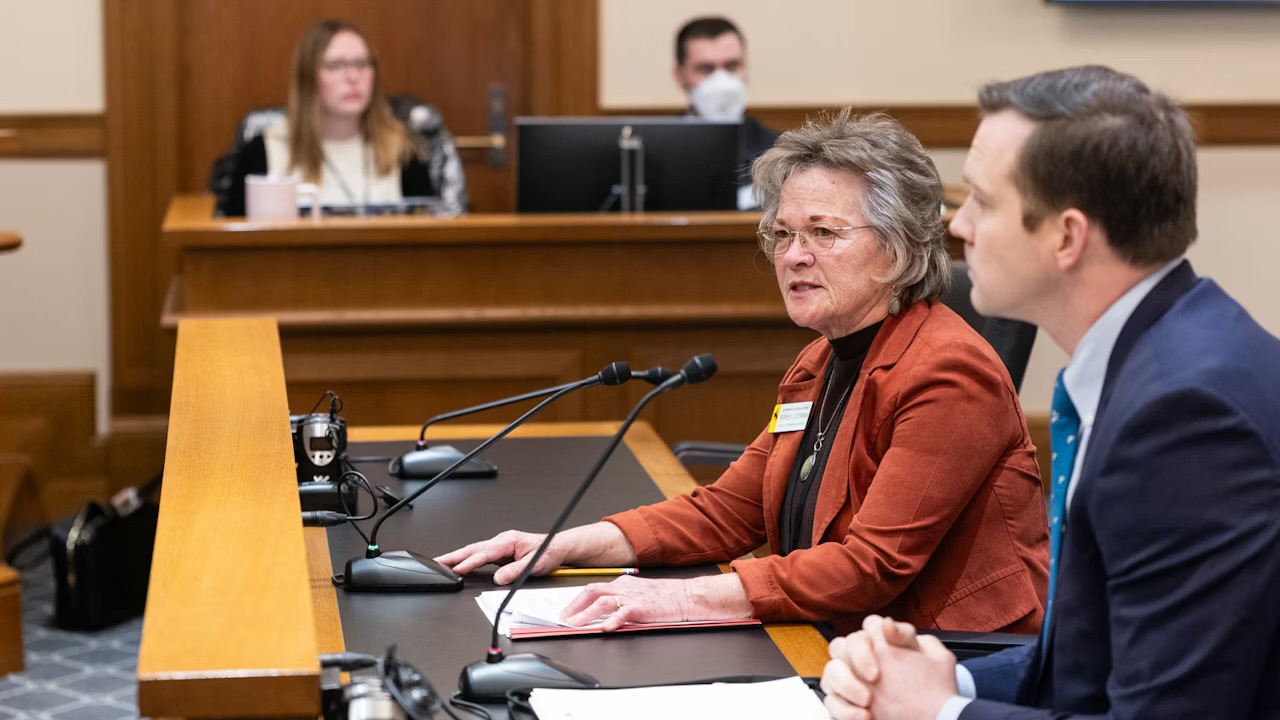
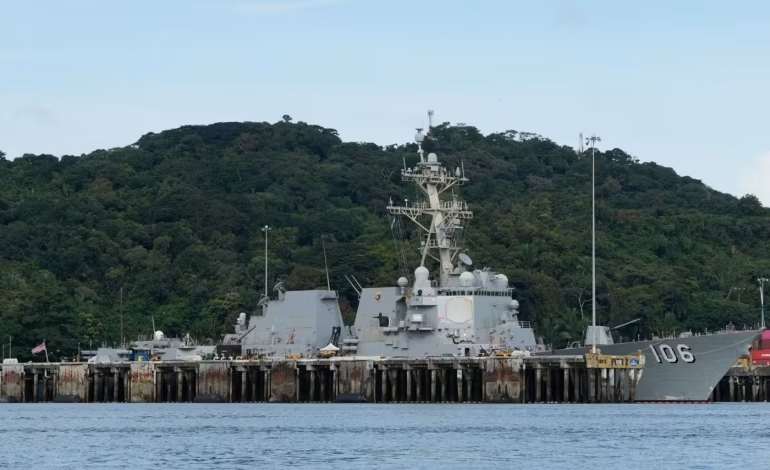




The latest news in your social feeds
Subscribe to our social media platforms to stay tuned